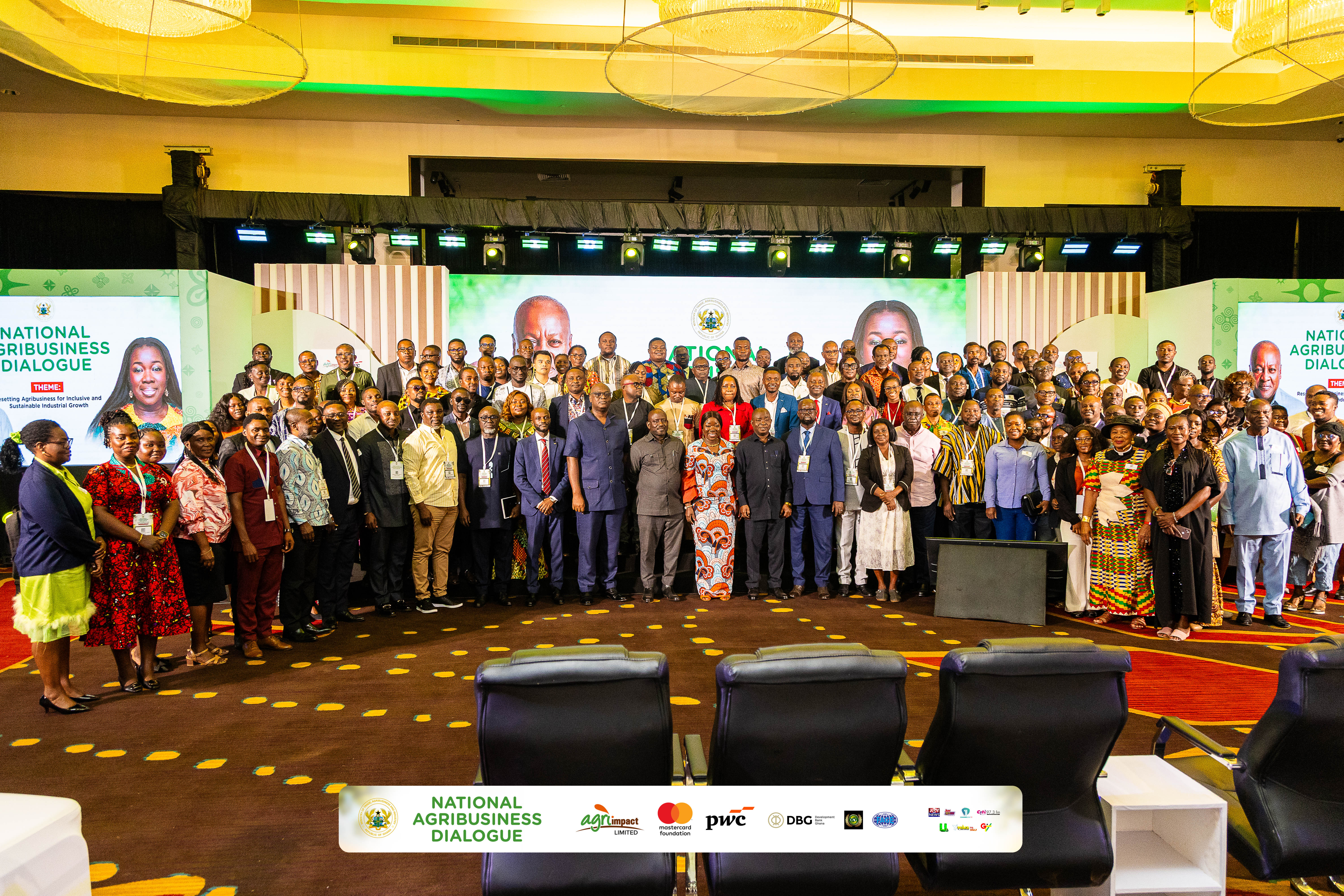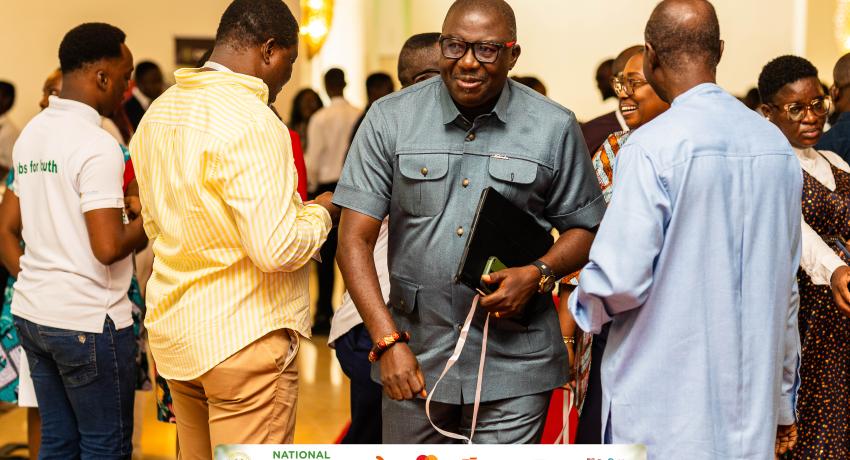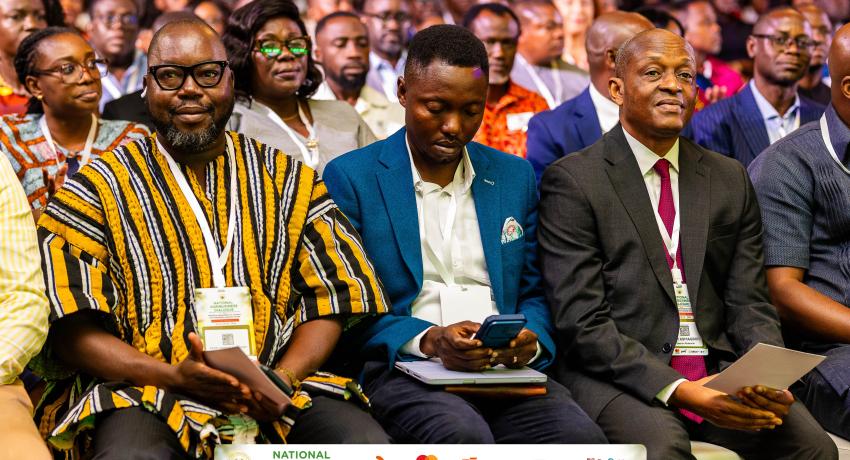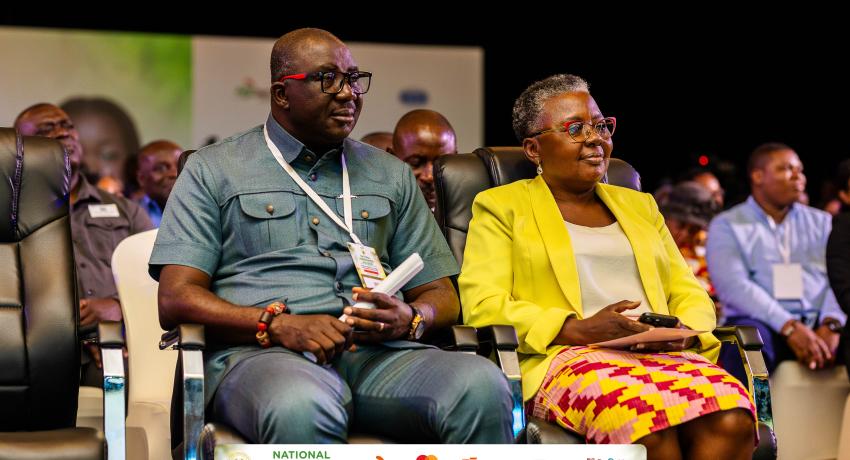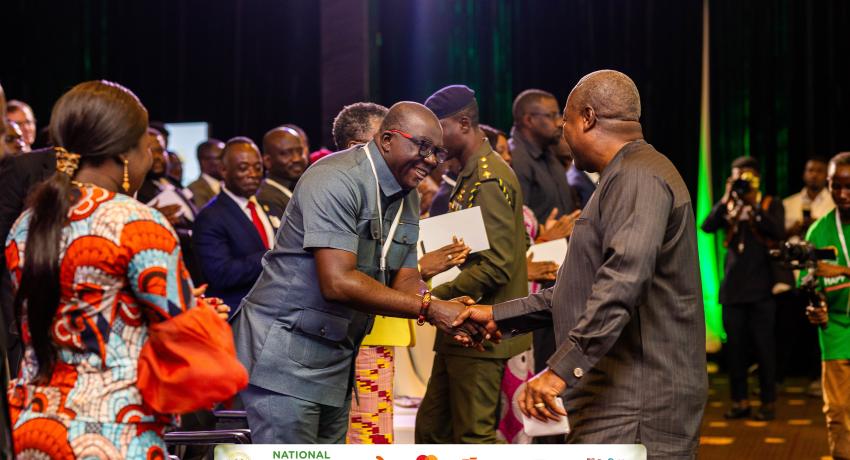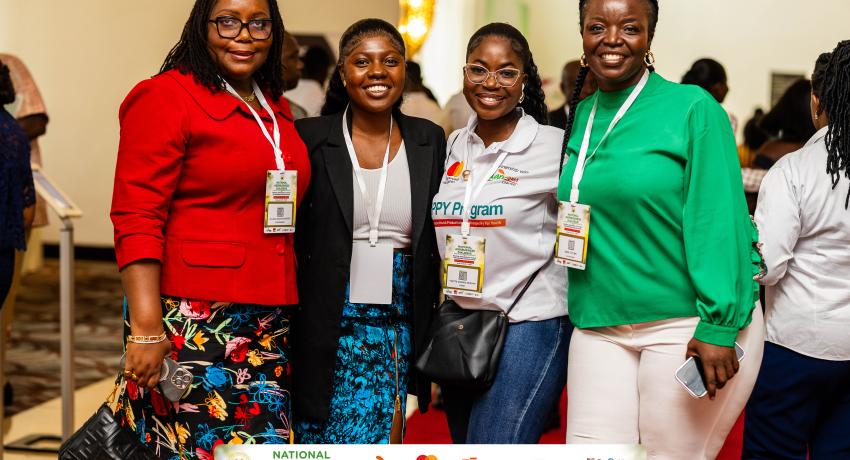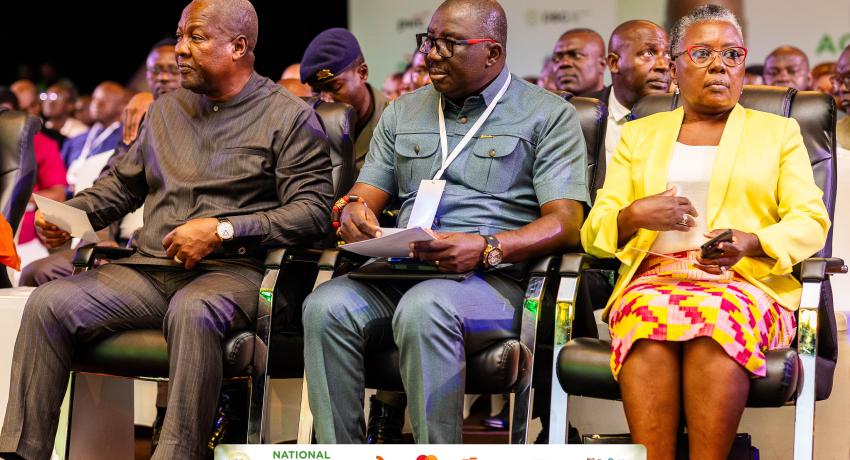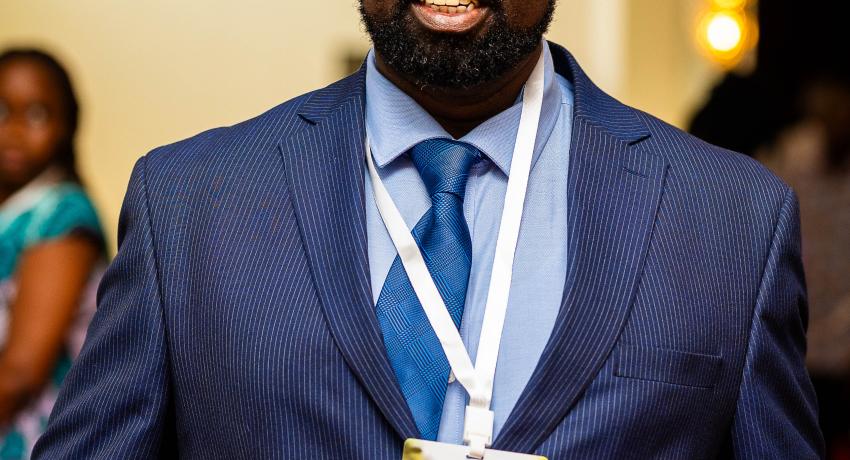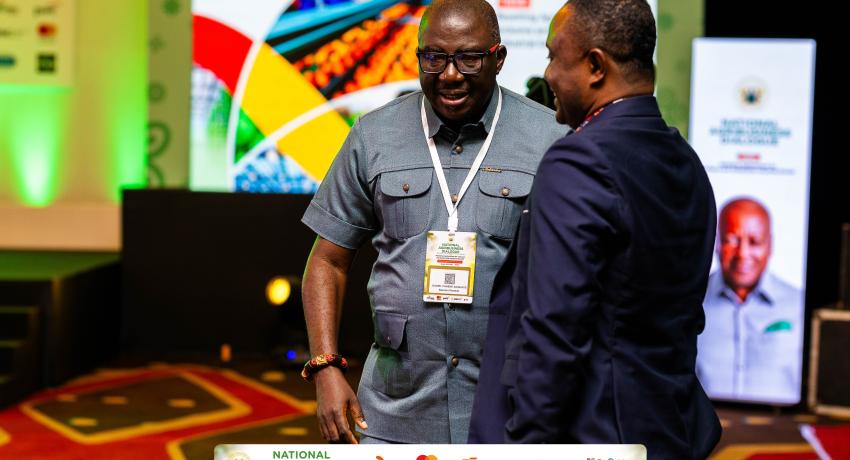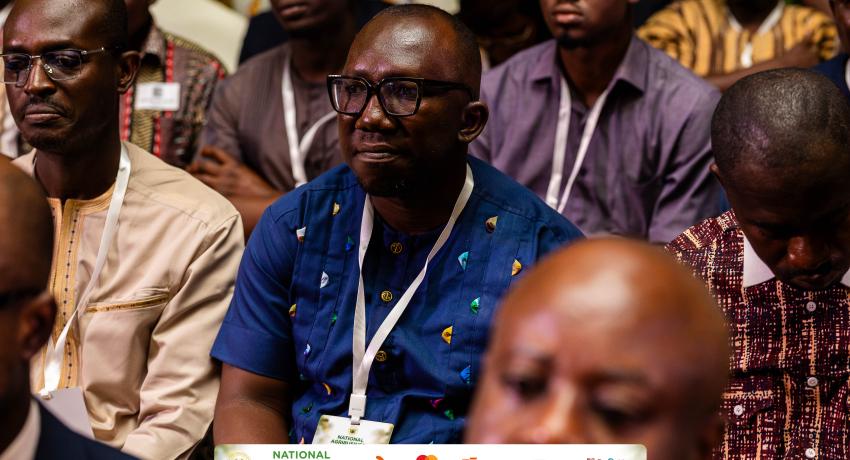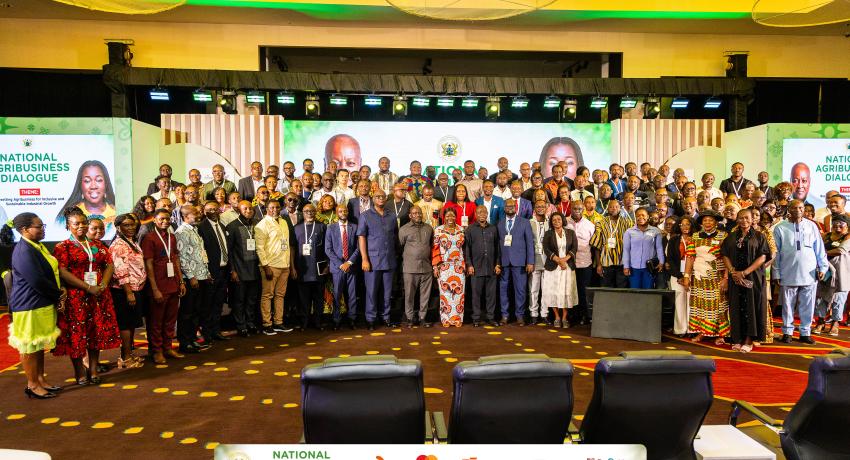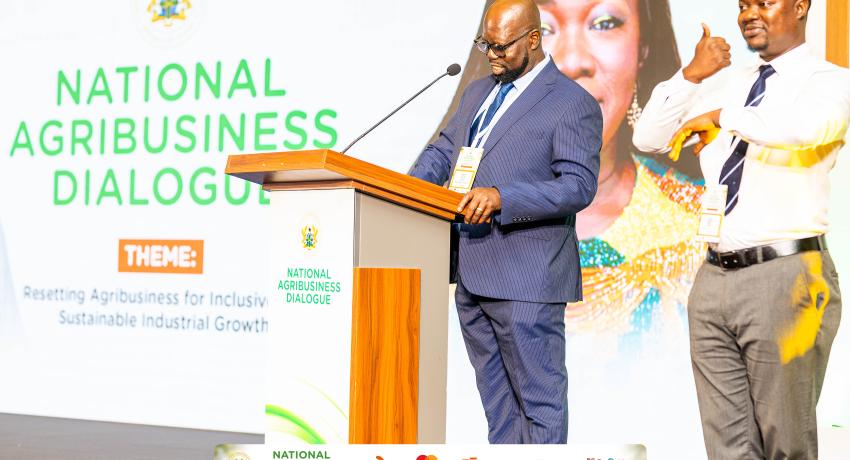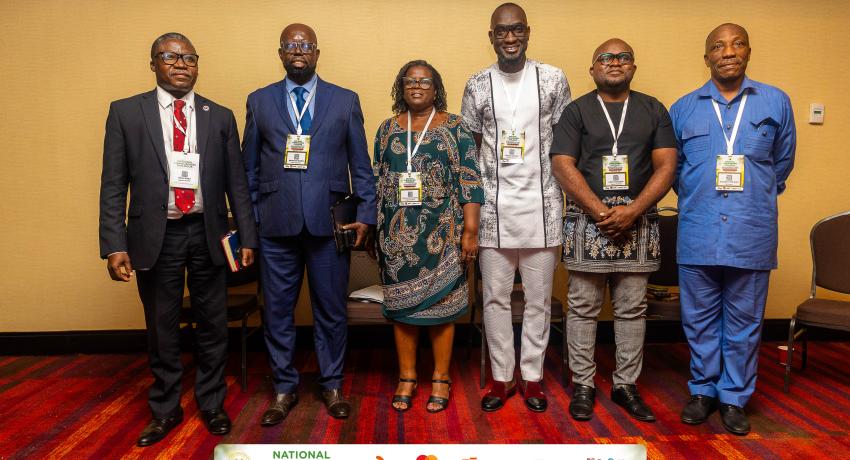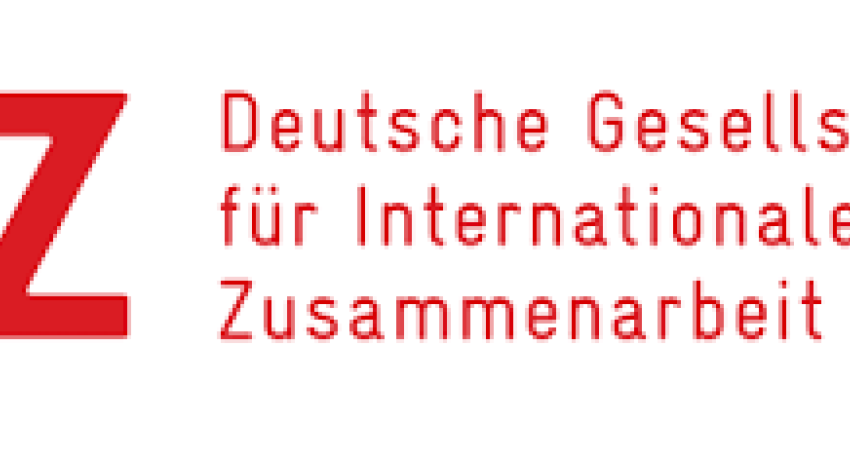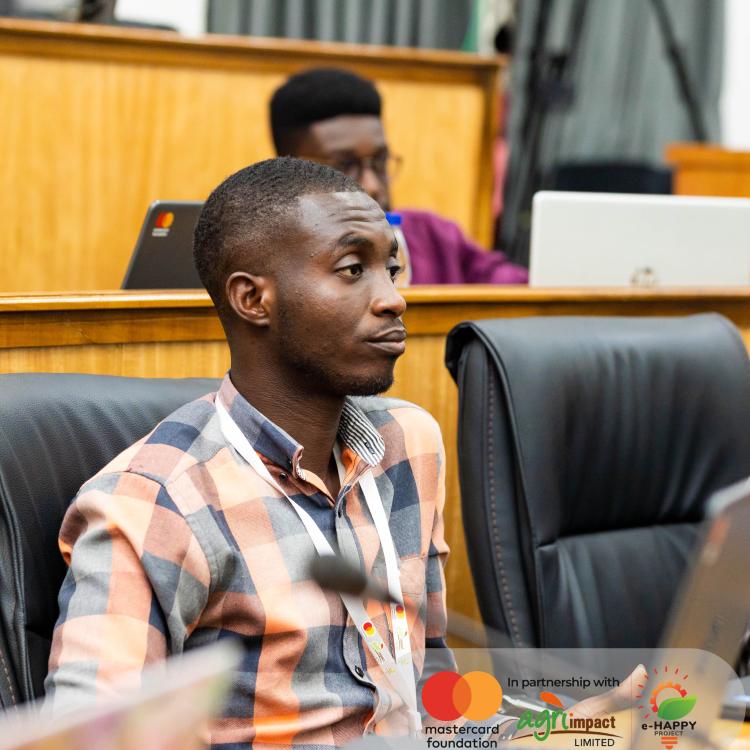His Excellency the President of the Republic of Ghana, the Vice President, Hon. Minister for Trade, Agribusiness and Industry, Distinguished Guests and Dignitaries, Captains of Industry, Partners, Industry Stakeholders, Ladies and Gentlemen;
Today marks a remarkable day where vision, desires and aspirations meet to reset the course of agribusiness, a sector that holds transformative potential for our economy, our people, and our future yet characterized by structural disconnect between primary production and industrial demand.
Many agro-processors—particularly in value chains such as maize, soy, rice, tomatoes, cassava, palm oil, poultry, and tree crops—operate significantly below installed capacity due to inconsistent, inadequate, and poor-quality raw material supply. For instance, rice mills operate at less than 40% capacity due to insufficient local paddy production and high post-harvest losses.
Tomato processing factories remain chronically underutilized whiles we import over US$400 million in processed tomato products annually. In the oil palm sector, domestic production is estimated at 300,000 metric tonnes, while industrial demand exceeds 600,000 metric tonnes. As we speak today, major national agro-processed brands are limited.
There is no question that agribusiness can transform Ghana’s economy. Empirical and in-fact spiritual evidence is there to prove. The real question is: what WILL we do-collectively and decisively-to move from potential to performance, and from opportunity to impact?
This dialogue will move beyond pilots and pledges. As a country, we have conducted enough pilots. It is time to Reset, Accelerate and Scale; anchored in bold, inclusive, technology-driven, and market-oriented policies.
Mr. President, why do we have to reset? In South Africa, whereas primary agriculture contributes 2.9% to GDP, agro-processing with logistics and trade account for 10% of GDP, more than 3 times as much. In Ghana, it is the reverse; Agriculture contributes about 26% of GDP while Agribusiness adds only 6%. Only 5-10% of our agricultural produce is processed locally. Some Large scale agro-processing firms have folded up either due to lack of sufficient raw material supply, technical know-how or structured market. It is not easy to count more than 15 large scale indigenous agro-processing firms in the country. Agribusiness firms are saddled with legacy debts largely due to lack of specialized financing products for actors.
To unlock financing and reverse Ghana’s trend, we wish to ask the big question? How do we establish an Agri-Fund (likened to GETFUND) dedicated to catalyzing investment in critical infrastructure, agro-processing facilities, and providing blended financing models to enable the private sector to thrive. A fund that will be a game-changer; de-risking investments, unlocking capital, and empowering industry actors to scale with confidence and resilience and reset the staggering $2 billion post-harvest losses into agribusiness gains. Agribusiness which is the demand side of skilled labour, churning out young entrepreneurs must receive equal financial attention as Education which is the supply side of skilled labour.
Mr. President, the Captains of Industry are happy and excited that under your leadership, we have The Ministry of Trade, Agribusiness and Industry. The position of Agribusiness at the intersection of Trade and Industry is strategic and forward looking. Today we must seize this opportunity to address a second fundamental issue; How do we nurture INDIGENOUS AGRO-PROCESSING CHAMPIONS with the ambition of transforming some into Unicorns with businesses valued at over $1billion?
Enterprise that will anchor value chains, drive industrial growth and represent Ghana on the global stage. These champions will not emerge by chance. They must be intentionally built through smart policies, targeted incentives and strategic partnerships. With a strong export orientation, they can brand Ghanaian quality, increase access to global and regional markets and fully integrate our producers into global value chains. Agribusiness may be local in operation but must be global in our vision.
“Ladies and Gentlemen, consider this: the combined land area of Ghana’s six northern regions Upper West, Savannah, Upper East, Northeast, Northern, and Oti represents approximately 64% of the entire country amounting to 152,000 square kilometers. Yet, these vast and fertile lands have little or no significant agro-processing infrastructure to off-take and add value to the abundant raw produce cultivated there. This glaring imbalance underscores why this Dialogue will focus not only on policy at the Centre, but on deliberately establishing agro-industrial hubs and value addition infrastructure that unlock economic opportunity across every region especially where land, labour, and potential remain underutilized.”
Ladies and gentlemen, SMEs account for 70% of Ghana’s GDP and of these SMEs 30-40% are involved in Agribusiness or agric-related activities. Sadly, only 5% use Internet of Things or advanced-technology. The Policy dialogue will address how to embed advanced agri-tech innovations from digital platforms to precision farming, climate-smart solutions to data-driven supply chains.
Mr. President, I am glad to inform you that just last week, the Drone Innovation and Simulation Unit -the first of its kind in Ghana- was launched at KNUST. With over 10 cutting edge drones and a virtual reality lab, this facility is training a new generation of drone service enterprises who will drive for agriculture productivity and competitiveness. I am humbled that the unit has been named after me “Dan F. Acquaye” and I am proud to serve as the Ambassador o the University's E-Learning Centre, where, with the support of Mastercard Foundation over 1,000 young people have been trained and more 200 have launched digital enterprises.
As climate change intensifies and ethical standards around sustainability grow, todays dialogue will also explore environmental and social investment that not only mitigate risk but also position Ghana as a responsible global player. And finally, and perhaps most importantly, we will deliberate about inclusion.
The focus of the dialogue must not only create job, but create dignified pathways for participation, leadership, andprosperity of youth, women and persons with disability. With agribusiness our youth should not become job seekers, but enterprise builders Ladies and Gentlemen, this dialogue is not a talk shop;
It is a strategic turning point and let us align our actions with existing flagship initiatives - 24HR+ Economy, Agriculture for Economic Transformation Agenda and the BIG PUSH Programme – to position agribusiness as a national transformation engine. Let us transition from We can to We Will and return tomorrow to declare
we have done it.
IT IS TIME TO RESET, IT IS TIME TO ARISE, AND IT IS TIME TO BUILD
Thank you.




